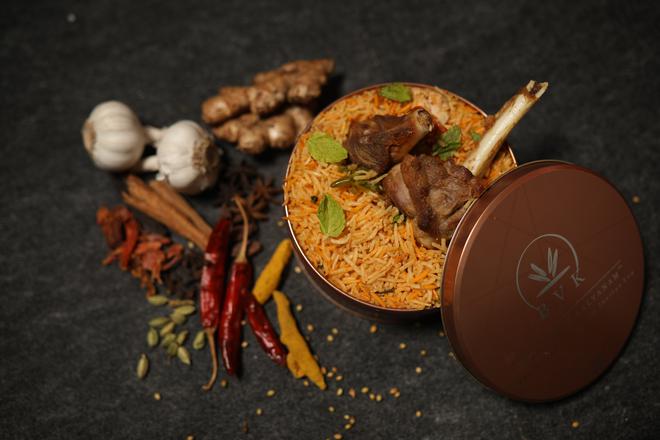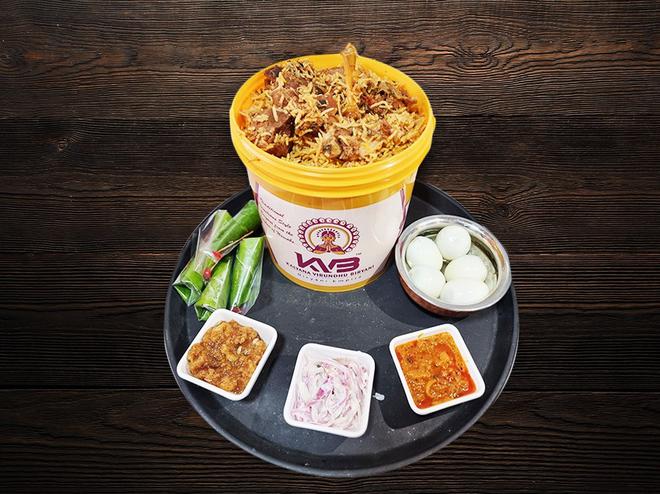On an overcast Sunday morning, Vasisht S, a chartered accountant from Chennai’s West Mambalam, made an announcement at home: ‘We’ll eat lunch outside.’ A few hours later, the Vasisht household — comprising 11 people — headed to a wedding feast and ate to their hearts’ content.
Only, there was no bride or groom.
The menu however, included dishes like Srirangam puliyodharai, kadamba sambar and beans paruppu usili, and featured almost everything you get at a traditional Tamil vegetarian wedding meal. Including the welcoming ambience.
Which is why this family chose to head to T Nagar’s Sri Balaji Kalyana Mandapam for lunch that day, instead of a regular restaurant. “I loved the sambar saadam (sambar rice),” says Vasisht, “Going to a hotel is expensive and the food can be dicey. The atmosphere here is very homely.”
Welcoming them and many other patrons with a big ‘namaskaram’ are M Krishna and MKL Suseela of Suvee Brahmin Caterers, who have discovered a clever niche with wedding food festivals: set up at halls, they include everything except the ceremony. The duo started with Shree Hall in December last year, an event that, Krishna says, “had T Nagar come to a standstill.”

“More than a thousand people landed from 11 to 1am that Sunday, and we were just overwhelmed with such a response. The serpentine queue trailed back till the T Nagar bus terminus,” he adds. Subsequently, they have had such events in Nanganallur and T Nagar; and are currently prepping for an unlimited leaf service this weekend at Thirumal Thirumagal Vasantha Mahal in Padi. It promises 29 dishes at ₹299, with the menu including items such as agrahara akkara vadisal and madapalli thayir sadam, food usually offered in temples.
Such a deal is a win-win for both the customers and the caterers. While the former gets a full-fledged kalyana saapaadu experience, the latter makes best use of available resources such as chefs and helpers on slow work days.
This trend is picking up this July and August, which marks the Tamil month of Aadi, considered an inauspicious time to conduct weddings. Krishna, inspired by the response to his festivals, is now setting up his Suvee Brahmin Mess at Ramakrishnapuram, West Mambalam. He says the festivals are a great chance to network and get prospective customers. “A leading corporate booked us for their function as one of their employees ate at an earlier function and loved our food,” he says, “Instead of just promoting our catering, such an event gives a ‘touch and feel’ atmosphere to our patrons.”
Such events are not restricted to the outdoors alone; you can get a similar wedding food experience at home as well, now that biryani-speciality restaurants are also embracing the festive wedding trend.
Tastes like home
When you think of ‘wedding biryani’, you invariably associate it with the flavoursome biryani served in a typical bai veetu kalyanam. But it is not everyday do you get invited to a Muslim wedding. When Faheem S launched his startup Bai Veetu Kalyanam (BVK) back in January 2020, the idea was to put together a wedding menu capitalising on its popularity among biryani loyalists.

A wedding biryani invariably means mutton, and a lot depends solely on the way it is cooked. The rice — whether it is seeraga samba or basmati — plays as important a role as the meat and masala. According to Faheem, what separates the biryani you get in a Muslim household from the rest, is the lavish use of freshly ground spices for the masala.
“What we do is, we cook basmati rice along with the meat and masala. In doing so, mutton’s flavour is soaked up by the rice. The cooking process takes two to three hours,” he says, adding that BVK has now adapted for bulk production.
A shared love of biryani inspired friends-turned-partners Hari Krishnan, Kiran Kumar and Ajmal Khan to enter into a joint venture with Kalyana Virundhu Biryani (KVB) in December 2021. “I used to go to Ajmal’s house for weddings and occasions. Even though you get biryani everywhere, bai veetu biryani is a real deal. They prepare it on that particular day so that it is fresh and hot, and is served on a banana leaf. We wanted to use the same concept,” says Hari Krishnan, adding that KVB’s kitchen is in Pattalam.

Though BVK and KVB are rivals in the cut-throat business, they are united by the common goal: to serve a wedding feast in the comfort of your home.
Operating with a cloud kitchen, BVK uses fresh meat which in itself poses a challenge, says Faheem. “Our pricing [₹449 for two people] is on the higher side because we want people to feel at home. At the same time, we are not here to sell biryani but our brand,” he says. Faheem of Bai Veetu Kalyanam says they get requests to cook for weddings. “Not just Muslim weddings, biryani is popular in Christian weddings too. We have a panel of 10-15 cooks. But it won’t fall under the BVK name,” he says. He adds that in such cases, people can opt for their comprehensive box package, which comes as a gift box. “Even recently, we got an order of 5,000 boxes for Chief Minister [MK Stalin] sir’s birthday celebrations from his party members.”
Hari Krishnan says that when you refuse to compromise on the mutton, profits are tougher. “It was a struggle in the first three months. Selling 15 kilos of biryani [₹370 for 1,000ml mutton and ₹270 for chicken] was a big deal then. But we have seen growth. Now we sell somewhere between 40-70 kilos during weekdays and 150 kilos during weekends,” he says, adding that KVB picked up pace and built a customer base purely on word-of-mouth.
“Some people ask for a banana leaf along with their order and we make that arrangement too,” says Hari, adding that KVB has cooked for over 10 weddings, in addition to corporate functions and birthday parties.
Aggressive delivery during the lockdown made it possible for BVK make an impact in Chennai, an already crowded and competitive market for biryani. There is, however, a constant stream pf new players: Bhai Kalyana Biryani, Kalyana Bhai Biryani, Bai Veetu Kalyanam Biryani and more. “People ask us for franchise but we want make our brand pan-India. We get requests from Dubai, Australia and the US. But we don’t want to fly without wings,” concludes Faheem.







